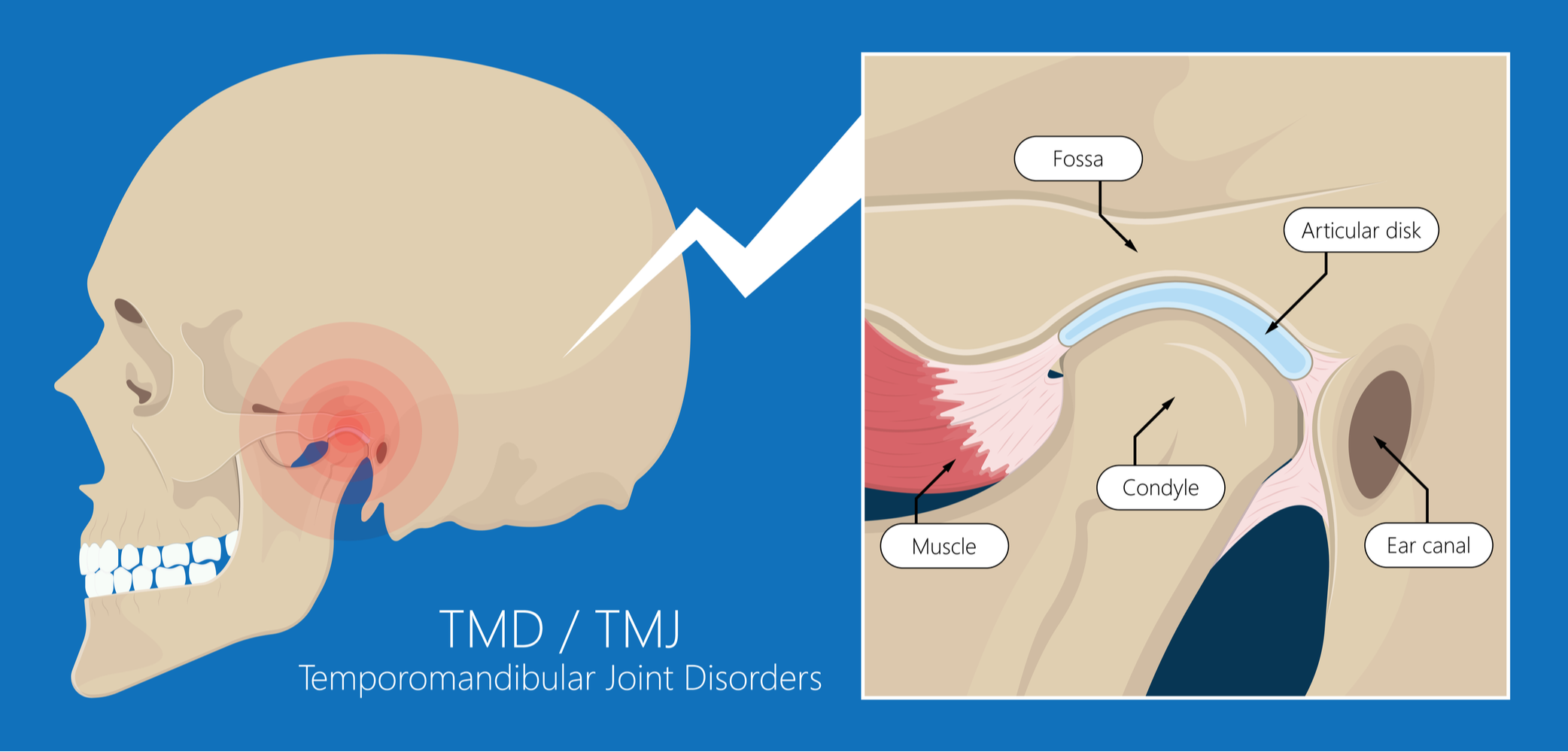
TMJ – or the temporomandibular joint – is the joint that is found on either side of the face and connects the jaw to the skull. The joint itself is held together by ligaments and other connective tissues that originate in different parts of the head and neck. These work with the connecting muscles to support the jaw and guide its movement. The TMJ can move in two different ways. Firstly, it has the hinge-like motion that enables us to open our mouth wide and then close it again. Secondly, the lower part of the jaw can open and slide back and forth. Together, these movements combine to give us the normal function that we are used to – eating, speaking, and performing functions such as yawning. Unfortunately, just like any other joint in our body, the TMJ can experience problems that affect its function. These issues are known as TMJ disorder or TMD.
Signs of TMJ disorder
If you are suffering from problems with your TMJ, you may notice one or a combination of the following symptoms:
Persistent headaches, especially first thing in the morning
Persistent earache or tinnitus
A feeling like your ears are blocked
Pain in the muscles in your face, particularly those around your jaw
Clicking, popping, or grinding noises when you move your jaw, such as when eating or yawning
Swelling of the face and/or neck
Pain or stiffness when opening and/or closing the jaw
If you notice any of these symptoms, you should schedule an appointment with your dentist to determine the cause of your TMJ issues and what can be done to help.
Main causes of TMJ disorder
There’s a range of different factors that can trigger the development of TMJ disorder, with some more common than others. The severity with which the patient experiences the condition can also vary between individuals, with some even finding fluctuations in how badly they are affected.
Some of the main causes of TMJ disorder include the following:
Bruxism.
Bruxism is a condition that is characterized by the clenching and grinding of the teeth. This is usually subconscious or completely unconscious, with the patient experiencing it when they sleep. As you might imagine, bruxism can have several unpleasant effects on the condition and health of the teeth. In addition to erosion, the constant pressure on the jaw can called TMJ disorder to develop.
Osteoarthritis.
The most common form of this degenerative condition, osteoarthritis can affect any joint in the body including the jaw. Inflammation, pain, and degeneration of the joint is to be expected.
Stress.
Stress has a very real, physical impact on our health and wellbeing. Stress is often a contributing factor in the development of bruxism, as well as causing people to subconsciously tighten the muscles in their jaw.
Injury/trauma.
If you are involved in an accident or sustain an injury that affects your head, neck, or face, it could result damage to the jaw that causes TMJ disorder to develop. In addition to treating the injury, patients may need further support to overcome the symptoms of TMJ disorder that they are experiencing.
Fortunately, TMJ disorder can usually be treated by first identifying the cause and then taking the appropriate steps to eliminate the condition. The precise treatment that you will be recommended will depend on the cause of your symptoms. For example, if you are diagnosed with bruxism, a mouth guard and/or muscle relaxant could stop you from clenching and grinding your teeth as much, alleviating your TMJ disorder. Alternatively, you may be recommended for bite realignment surgery which is designed to improve the way that your teeth come together when your jaw is closed and can reduce the effects of TMD.
If you are concerned about TMJ disorder, don’t hesitate to call (424) 404-6400 to get in touch with our knowledgeable team at Concierge Smile Boutique who will be delighted to assist you.








